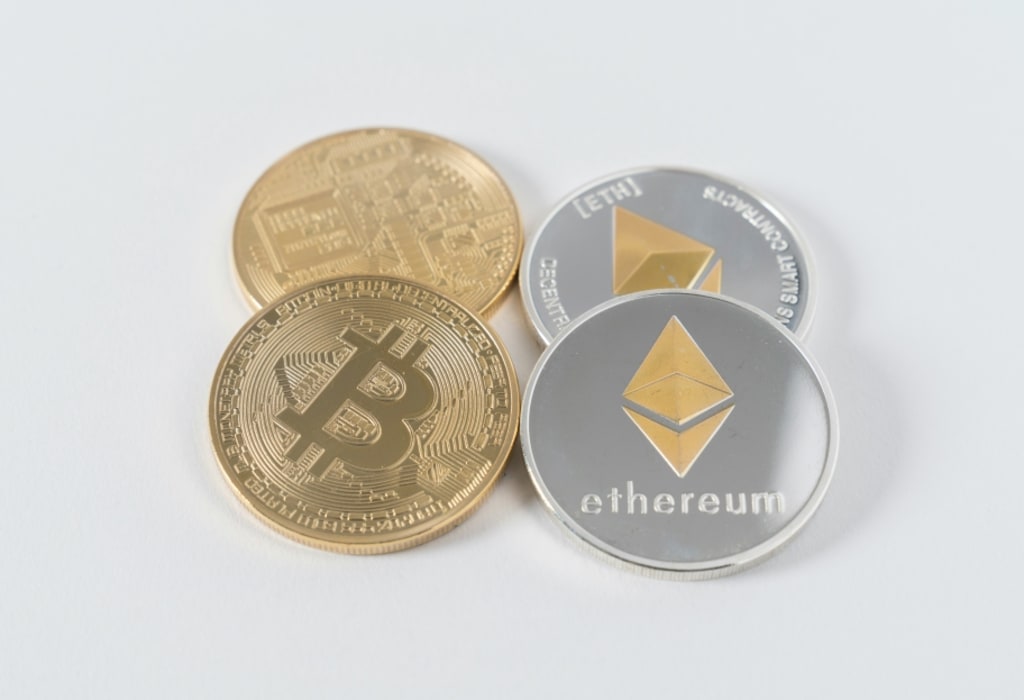The Impact of Blockchain on Supply Chain Management: Revolutionizing Transparency, Security, and Efficiency
Blockchain Revolution: Transforming Supply Chain Management with Transparency and Efficiency

In recent years, blockchain technology has emerged as a transformative force across various industries, and its impact on supply chain management (SCM) has been profound. Blockchain, originally developed as the underlying technology for Bitcoin, is a decentralized, distributed ledger system that offers unprecedented levels of transparency, security, and efficiency. In this article, we will explore the ways in which blockchain is revolutionizing supply chain management, and the benefits it brings to businesses and consumers alike.
1. Enhanced Transparency
One of the key challenges in traditional supply chains is the lack of transparency. With multiple parties involved in the process, including manufacturers, suppliers, distributors, retailers, and consumers, tracking the movement of goods from the point of origin to the final destination can be complex and opaque. Blockchain technology addresses this challenge by providing a transparent and immutable record of every transaction and movement of goods.
By recording each transaction on a block and linking it to the previous one, blockchain creates a chain of blocks that is secure and tamper-proof. This transparency enables all parties in the supply chain to have a clear view of the entire process, from production to delivery. For example, in the food industry, blockchain can be used to track the origin of produce, ensuring its authenticity and quality.
2. Improved Traceability
In addition to enhancing transparency, blockchain also improves traceability in supply chains. Traditional supply chains often rely on paper-based records or centralized databases, which can be susceptible to errors and fraud. With blockchain, each transaction is verified by multiple parties and recorded on the ledger, creating an auditable trail of every product's journey through the supply chain.
This level of traceability is particularly valuable in industries where product provenance is crucial, such as pharmaceuticals and luxury goods. Blockchain can help verify the authenticity of products, detect counterfeit goods, and ensure compliance with regulations.
3. Increased Security
Security is another area where blockchain offers significant advantages for supply chain management. Traditional supply chains are vulnerable to fraud, theft, and cyber-attacks, as centralized databases can be hacked or manipulated. Blockchain's decentralized nature makes it highly secure, as each transaction is encrypted and linked to the previous one, making it nearly impossible to alter the data retroactively.
By using blockchain, supply chain participants can ensure the integrity and security of their data, protecting it from unauthorized access and tampering. This increased security can lead to cost savings and improved trust among stakeholders.
4. Streamlined Processes and Efficiency
Blockchain technology has the potential to streamline supply chain processes and improve efficiency. By providing a single, shared ledger that is accessible to all parties, blockchain reduces the need for intermediaries and manual record-keeping. This can lead to faster transaction times, reduced paperwork, and lower costs.
For example, blockchain can automate the process of verifying and approving transactions, reducing the time and resources required for these tasks. This increased efficiency can result in faster delivery times, lower inventory costs, and improved customer satisfaction.
5. Supply Chain Optimization
Beyond transparency, traceability, security, and efficiency, blockchain also enables supply chain optimization. By analyzing the data recorded on the blockchain, businesses can gain insights into their supply chain operations and identify areas for improvement. For example, they can identify bottlenecks, optimize inventory levels, and reduce wastage.
Blockchain also facilitates the integration of other emerging technologies, such as Internet of Things (IoT) devices and artificial intelligence (AI), into the supply chain. By connecting these technologies through blockchain, businesses can create a more connected and intelligent supply chain that can adapt to changing market conditions and customer demands.
6. Reduced Costs
Another significant impact of blockchain on supply chain management is the potential for cost reduction. By eliminating the need for intermediaries and streamlining processes, blockchain can help reduce costs associated with manual record-keeping, paperwork, and transaction fees. Additionally, the increased transparency and traceability provided by blockchain can help reduce costs related to fraud, theft, and counterfeit goods.
For example, blockchain can enable more efficient inventory management, reducing the costs of holding excess inventory. It can also facilitate faster and more accurate payments between supply chain partners, reducing the costs associated with late payments and disputes.
7. Enhanced Sustainability
Blockchain technology can also contribute to enhanced sustainability in supply chains. By providing transparency and traceability, blockchain can help businesses and consumers make more informed decisions about the products they buy. This can lead to increased demand for sustainable and ethically sourced products, driving businesses to adopt more sustainable practices.
Blockchain can also help track the environmental impact of products throughout their lifecycle, enabling businesses to identify areas for improvement and reduce their carbon footprint. This increased transparency can also help businesses comply with regulations related to sustainability and environmental impact reporting.
8. Improved Risk Management
Supply chain management is inherently prone to risks, such as natural disasters, geopolitical events, and supplier disruptions. Blockchain can help mitigate these risks by providing a secure and transparent record of transactions and inventory movements. This can help businesses quickly identify and respond to disruptions, reducing the impact on their operations.
For example, blockchain can enable real-time tracking of shipments, allowing businesses to reroute shipments in response to disruptions and minimize delays. Blockchain can also help verify the authenticity of products and reduce the risk of counterfeit goods entering the supply chain.
9. Adoption Challenges and Future Outlook
While the potential benefits of blockchain in supply chain management are significant, there are also challenges to adoption. These include concerns about data privacy, interoperability with existing systems, and the complexity of implementing blockchain technology.
Despite these challenges, the future outlook for blockchain in supply chain management is promising. As businesses increasingly recognize the benefits of blockchain, we can expect to see continued investment and innovation in this area. Ultimately, blockchain has the potential to revolutionize supply chain management, making it more transparent, secure, efficient, and sustainable.
Conclusion
In conclusion, blockchain technology is revolutionizing supply chain management by enhancing transparency, improving traceability, increasing security, streamlining processes, reducing costs, enhancing sustainability, and improving risk management. As businesses continue to adopt blockchain, we can expect to see further improvements in supply chain efficiency and reliability, benefiting both businesses and consumers alike.
Conclusion
In conclusion, blockchain technology is revolutionizing supply chain management by enhancing transparency, improving traceability, increasing security, streamlining processes, and enabling supply chain optimization. As businesses continue to adopt blockchain, we can expect to see further improvements in supply chain efficiency and reliability, benefiting both businesses and consumers alike.
Dear Readers 💙
Thank you for reading our article on "The Impact of Blockchain on Supply Chain Management"! If you found the information valuable and insightful, please consider clapping or giving it a like.
Additionally, don't forget to follow the author for more engaging content on blockchain and other innovative technologies.
Subscribe to our newsletters to stay updated on the latest trends and developments in supply chain management and technology. Your support means a lot to us!
About the Creator
BLESSING COOL
Digital Network Marketer || Crypto Enthusiat || Social Media Influncer || Skilled Serial Entrepreneur || Investor || Motivational Speaker || News Reporter.






Comments
There are no comments for this story
Be the first to respond and start the conversation.